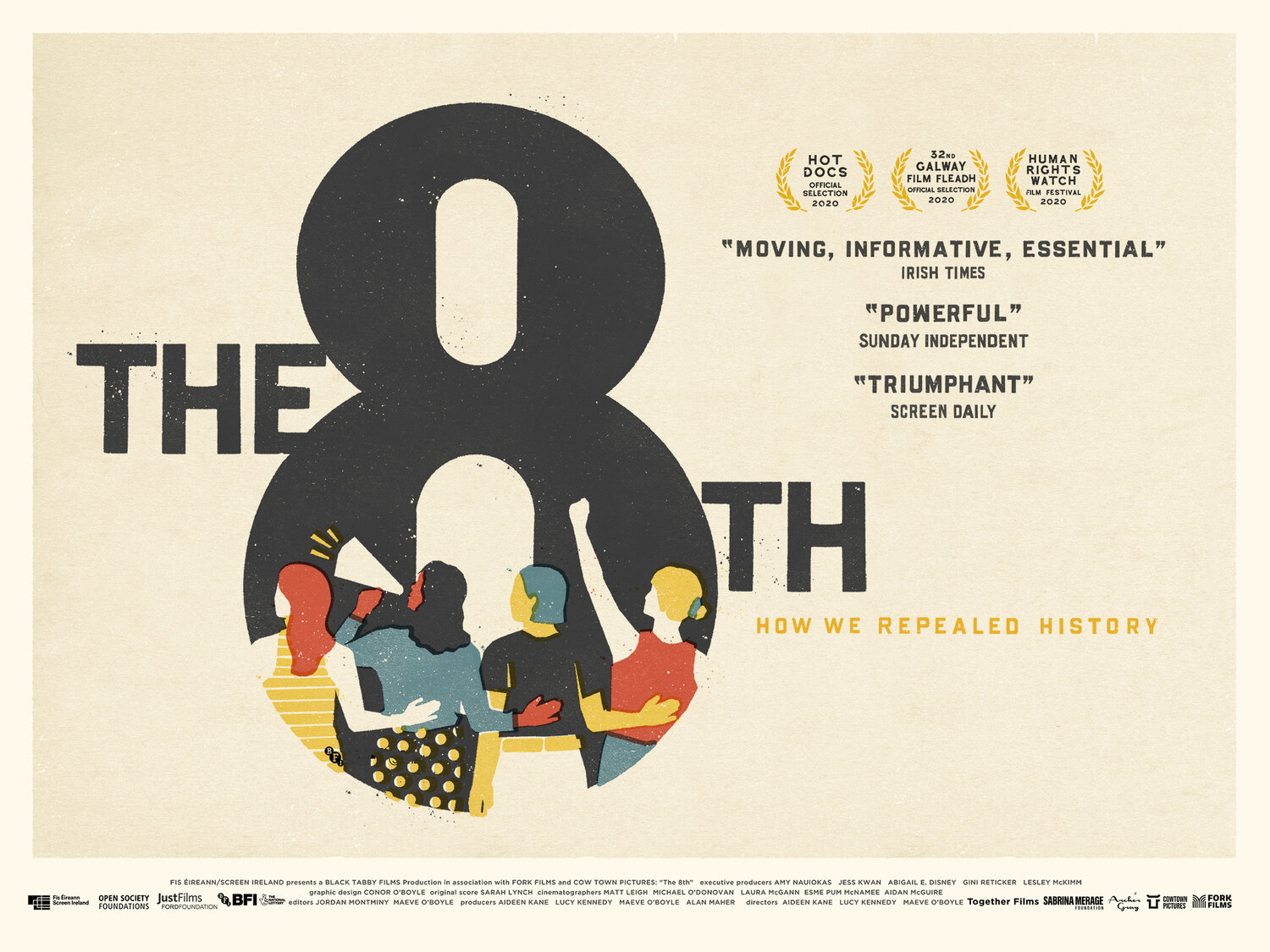In today’s world, 24 out of 195 countries prohibit abortion. Prohibited there, too, are abortions carried out to save a woman’s life. An additional 42 countries, including Brazil and Mexico, allow abortion if the circumstances are life-threatening. These are facts. But as of 18 September 2018, Ireland no longer features in this second category. The 8th, which premiered in May 2021, follows the repeal of the Eighth Amendment of the Constitution Act of 1983, an Act which largely undermined women’s rights by placing the life of an unborn child above that of its mother. In celebration of the repeal’s third anniversary, The 8th documents the behind the scenes activity of Ireland’s pro-choice movement, led by the ever-energetic Ailbhe Smyth and nail artist-turned-activist Andrea Horan, as they navigate the days leading up to the referendum.
The question of abortion in Ireland is divisive, as the documentary makes clear from the offset. While The 8th predominately highlights the life’s work of Smyth, who campaigned against the Eighth Amendment when it was first introduced, we also encounter perspectives from the other side. Journalist and radio presenter at Spirit Radio, Wendy Grace, is one of the leading figures of the pro-life movement. Grace is interviewed in the studio, leaning forward insistently as she speaks: “This [workforce] that was set up for men, by men, hasn’t adapted to the reality that women are now in it,” she states, referencing pregnancies had by working women. “How do we ever say that in order to be equal to men, we have to end the lives of children?”
Grace believes that there is another solution, and that legalising abortion would only deflect from the state’s inability to provide support and childcare to new mothers. Her associates are less diplomatic in their approach: “It’s murder! Can you not see? It’s murder!”, shouts a man during Smyth’s speech at a rally. Both sides of the debate are equally matched in their conviction and the camera periodically cuts between the two. Their strategies, however, are similar. In order to rack up support, Smyth’s side focuses on convincing those who remain undecided, many of whom are interviewed in the door-to-door clips. The heat mounts as the pro-choice and pro-life campaigners take part in a ruthless “compassion battle”, the power of which cannot help but affect the viewer.
“Ireland’s religious past, which arguably encouraged poor treatment of women, is seen as having caused ‘an entire country’s PTSD’”
As the documentary progresses, the fight for abortion begins to take on a new shape. The end of The 8th reveals historical and modern accounts of reproductive rights side by side. Ireland’s religious past, which arguably encouraged poor treatment of women, is seen as having caused “an entire country’s PTSD” (post-traumatic stress disorder). Abortion laws have come to represent women’s rights. In the run-up to the film’s climax, the abortion confessions of individual women blend together into a unified whole, a single voice to represent Ireland. This effect is furthered by breathtaking aerial shots of the country. There is a sense that the Eighth Amendment is no longer simply the Eighth Amendment. It is an opportunity to modernize Ireland, to separate it from a difficult past, and give Irish citizens the rights that they deserve. On election day, the relief is palpable: 66% of the population vote “yes”, while 34% vote “no” to the repeal. A new Ireland is formed in what Smyth calls a “national moment of catharsis.”
Abortion continues to be a highly-debated issue around the world. In the USA, many states are now in the same limbo that Ireland was in. Only last month, the state of Texas banned abortions when a foetal heartbeat could be detected. The European countries of Poland, Andorra, Liechtenstein, Malta, Monaco, and San Marino all have bans on abortion. Poland’s implementation of a near-total ban back in January caused some of the biggest protests in the country’s recent history. Ireland’s struggle to repeal the Eighth Amendment is one of many similar cases, yet it has been particularly amplified. The 8th explores the nuances of political activism, religious history, women’s experiences, and the physicality of a nation — and binds them in one cohesive report. The construction of the film as a whole is pleasantly symbolic and its message is impactful. The gamble of its production is justified by the resounding “yes” of the people. In the three years since the repeal, we cannot claim to have “fixed” the Irish sexual health system, or gender equality for that matter. But it is safe to say we are heading in the right direction.
The 8th made its broadcast debut on RTÉ on August 4 and is available to view online at the8thfilm.com.
A previous version of this article incorrectly said that Wendy Grace’s last name is Horan. Trinity News apologises for the error.






